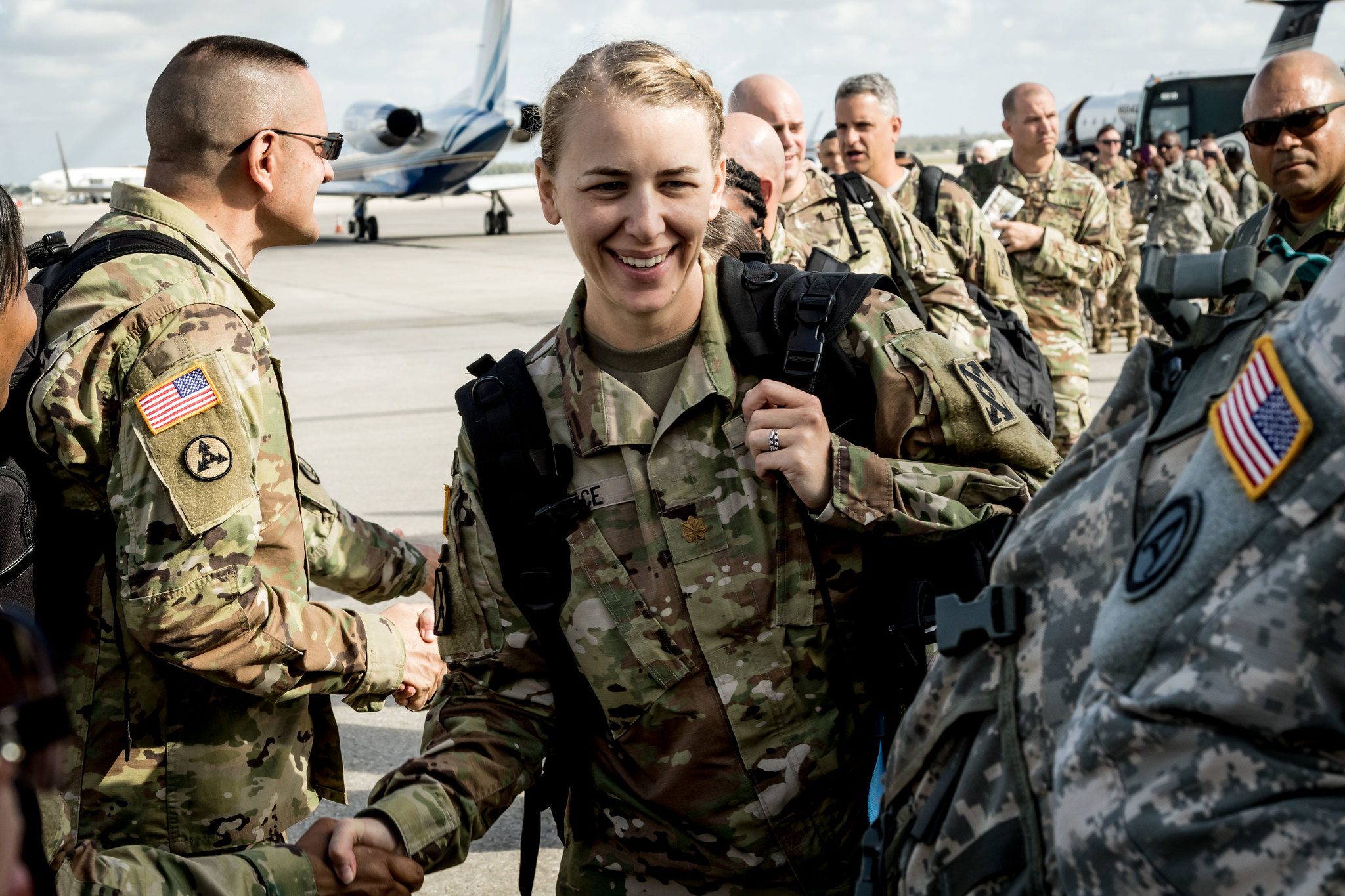By Karen Shirer, Ph.D.
Summary
- The conflict in Ukraine is what the U.S. military has prepared and trained for to be ready when the need arises. Both service members and their families are on heightened alert.
- Family service providers play an important role in supporting military families through deployment and permanent change of stations (PCS). They need to redouble their efforts to support family readiness and resilience.
- Numerous OneOp resources are available to equip service providers with the knowledge and skills to support military family readiness during times of transition.
Amongst the various strains and strands of stress and anxiety stemming from the violence in Ukraine comes the subtle but growing sense of dread and concern among the families of military service members. Practitioners will no doubt experience more urgent inquiries from stressed and anxious family members as units across the military prepare for the possibility of escalation.
– Dr. Keith Tidball
The above quote came from the opening sentences of the blog post, OneOp, and the Ukraine Context, on March 30, 2022, about the impacts of the Ukraine conflict on military families and the professionals who work with them.
Dr. Tidball reminds us that service members are prepared and trained for the possibility of deployment to war zones like Ukraine. It’s what they signed up for. Although troops have not currently deployed directly to Ukraine, they continue to support the NATO mission in Eastern Europe. The conflict also poses a risk for future escalation in the region and other regions in the world.
Dr. Tidball also reminds us that military families are anxious and stressed about the possibility of escalation and the deployment of their service members with some already deployed.
Military families have long played a critical role in military readiness. Dr. Tidball calls for all who support military families to “redouble” their efforts to promote military family readiness and resilience. Below you will find OneOp resources that can help service providers with these efforts during deployment and other transitions.
OneOp Resources on Deployment and Other Transitions
Deployment and permanent change of stations (PCS), whether as a single event or both events at the same time, often create anticipatory stress (AS) for both service members and their families. The blog post, Anticipatory Stress, defines AS as an increased stress reaction in anticipation of a difficult or unpredictable situation. Symptoms of AS and practical strategies for managing it are given.
Many military families have and will continue to experience deployment. Several recent blog posts highlight research and resources to help you support them:
- Hard is Normal describes what research tells us about the emotional cycle of deployment for service members and their families. The post contains an overview of the deployment process, suggestions for supporting military families, and additional resources.
- “It’s Different”: Re-igniting Couples’ Relationships after Deployment recaps The Relationship Changes of Military Couples During Reintegration webinar. Strategies and Resources for supporting military couples during the reunification phase are described.
- Resource Discovery: Deployment Resources for Military Service Members and Their Families contains useful information on websites and training regarding deployment, including OneOp and MilitaryOneSource.
Service members are continuing to experience Permanent Change of Stations (PCS) that require their families to move to new communities. Check out these blog posts for research and resources on PCSing:
- Supporting the Well-Being of Diverse Military Families Through a Social Justice Lens (OneOp, 2022) highlights the challenges of diverse military families as they PCS.
- Space & Time Disruption: Understanding the PCS Experience highlights the disruptions of PCSing for service members and their families and a OneOp webinar series on PCSing.
The future remains uncertain about the outcome of the conflict in Ukraine and other conflicts around the globe but deployment and PCSing will remain a fact of life for military families. What can you do to support the military families you serve to strengthen their resilience and readiness?
Calls to Action
- Share this blog post with colleagues who support military families experiencing deployment and/or PCSing, and with friends and family members who are experiencing deployment.
- Check out the resources (blog posts and webinars) and research highlighted in this blog post.
- Search the rich repository of deployment information on OneOp. Check out upcoming and past OneOp webinars. Continuing Education credits are available for OneOp webinars.
- Watch for future blog posts on deployment and PCSing at OneOp Family Transitions.
- Check on military families that you know and see how they are doing.
Writers Biography
 Karen Shirer, previous Associate Dean of the University of Minnesota Extension Center for Family Development. Karen is also the parent of two adult daughters, a grandmother, a spouse, and a cancer survivor.
Karen Shirer, previous Associate Dean of the University of Minnesota Extension Center for Family Development. Karen is also the parent of two adult daughters, a grandmother, a spouse, and a cancer survivor.
Photo source: Flicker















